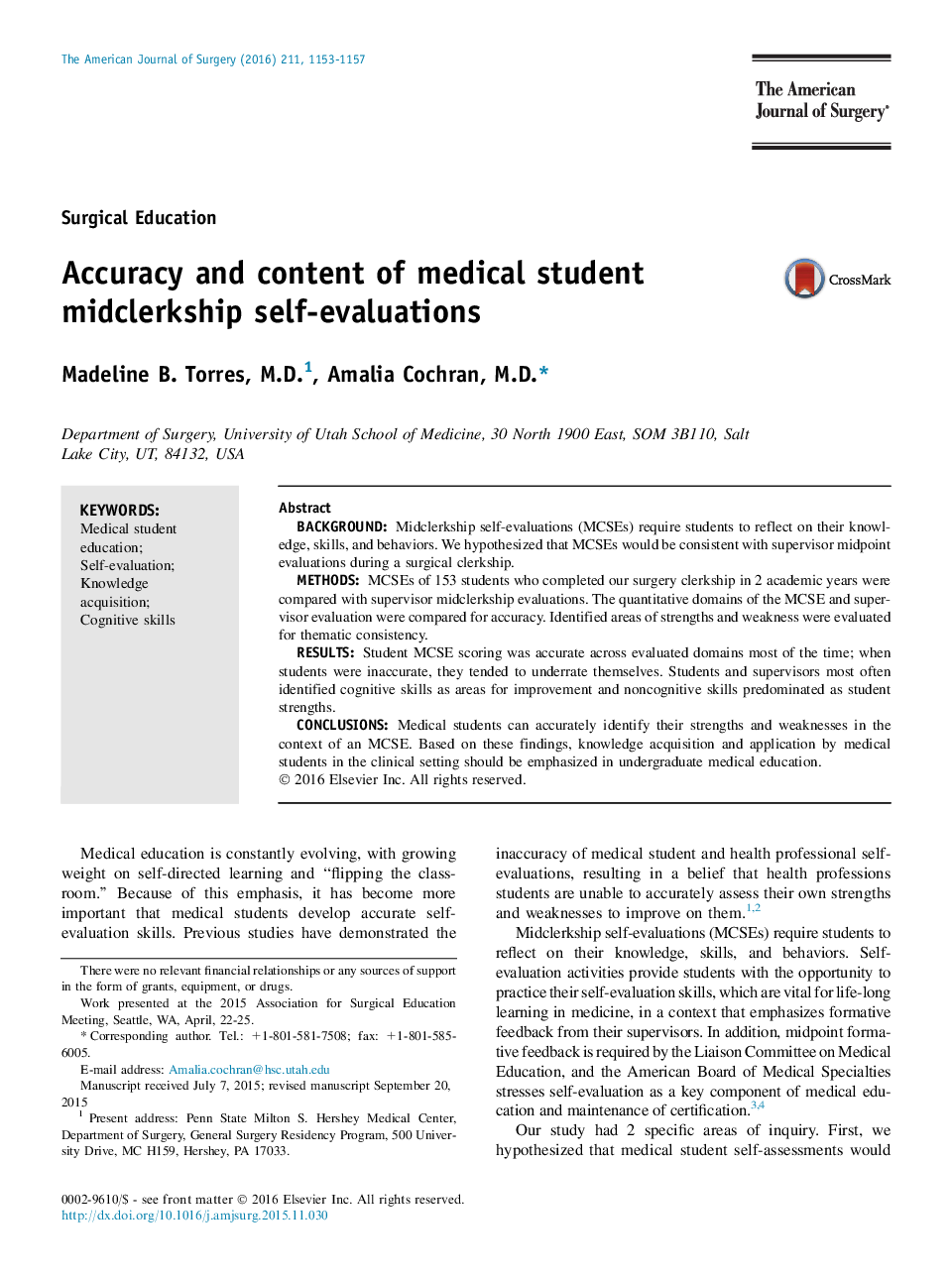| کد مقاله | کد نشریه | سال انتشار | مقاله انگلیسی | نسخه تمام متن |
|---|---|---|---|---|
| 4278203 | 1611482 | 2016 | 5 صفحه PDF | دانلود رایگان |
• Medical students can provide accurate self-evaluation.
• Cognitive skills are commonly identified areas for improvement.
• Cognitive skills merit more emphasis in undergraduate medical education.
BackgroundMidclerkship self-evaluations (MCSEs) require students to reflect on their knowledge, skills, and behaviors. We hypothesized that MCSEs would be consistent with supervisor midpoint evaluations during a surgical clerkship.MethodsMCSEs of 153 students who completed our surgery clerkship in 2 academic years were compared with supervisor midclerkship evaluations. The quantitative domains of the MCSE and supervisor evaluation were compared for accuracy. Identified areas of strengths and weakness were evaluated for thematic consistency.ResultsStudent MCSE scoring was accurate across evaluated domains most of the time; when students were inaccurate, they tended to underrate themselves. Students and supervisors most often identified cognitive skills as areas for improvement and noncognitive skills predominated as student strengths.ConclusionsMedical students can accurately identify their strengths and weaknesses in the context of an MCSE. Based on these findings, knowledge acquisition and application by medical students in the clinical setting should be emphasized in undergraduate medical education.
Figure optionsDownload high-quality image (144 K)Download as PowerPoint slide
Journal: The American Journal of Surgery - Volume 211, Issue 6, June 2016, Pages 1153–1157
